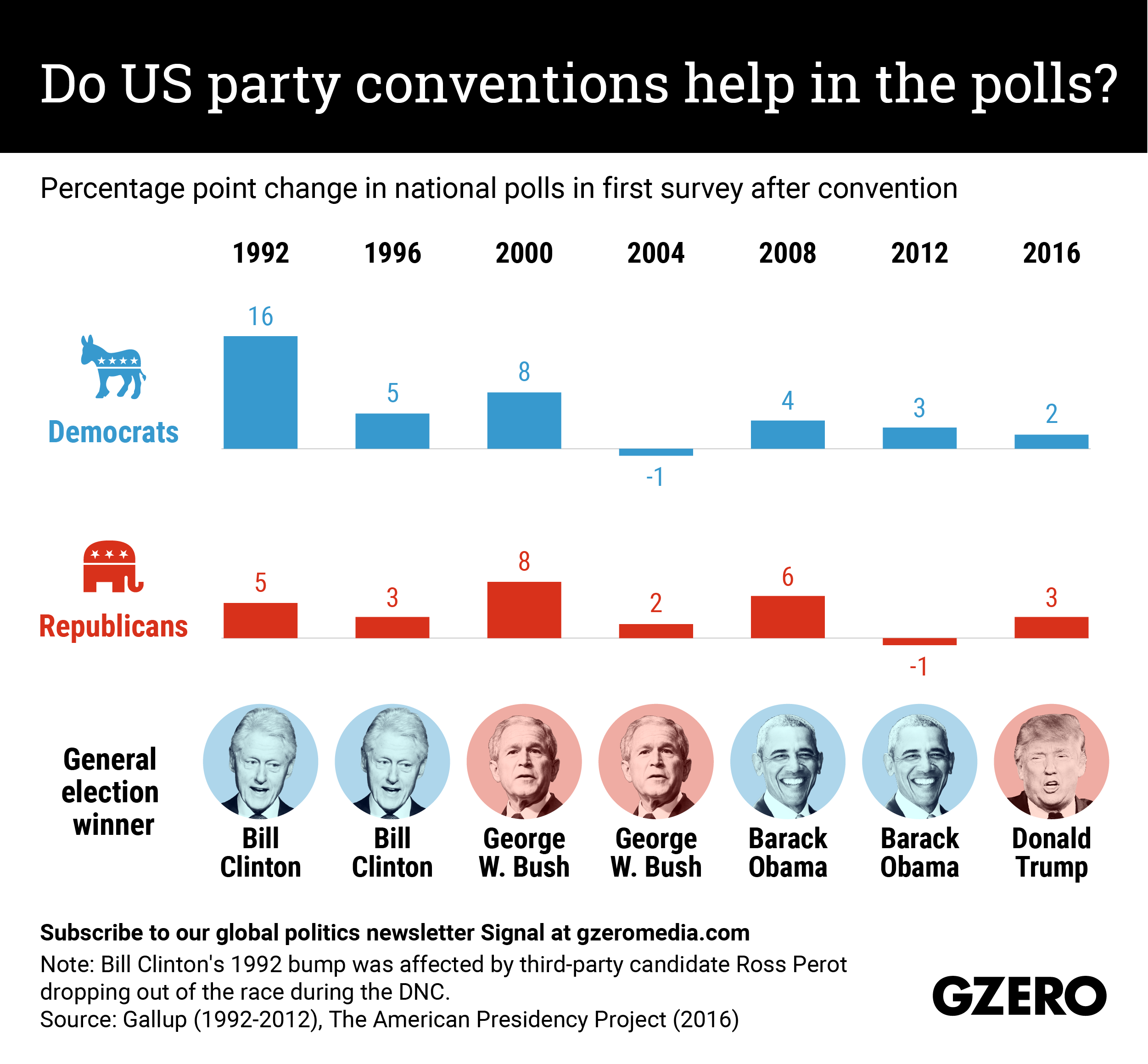The Graphic Truth: Do US party conventions help in the polls?
August 25, 2020
US presidential candidates usually get a polling boost immediately after their major party convention. But in recent years the so-called "convention bounce" is hardly guaranteed — Democratic hopeful John Kerry's numbers dipped slightly in 2004, as did Republican aspirant Mitt Romney's in 2012. Even when post-convention bumps have been bigger, that hasn't always translated into winning the White House in the end. With the DNC done and the RNC wrapping this week, we take a look at how conventions have historically affected the candidates' poll numbers.
